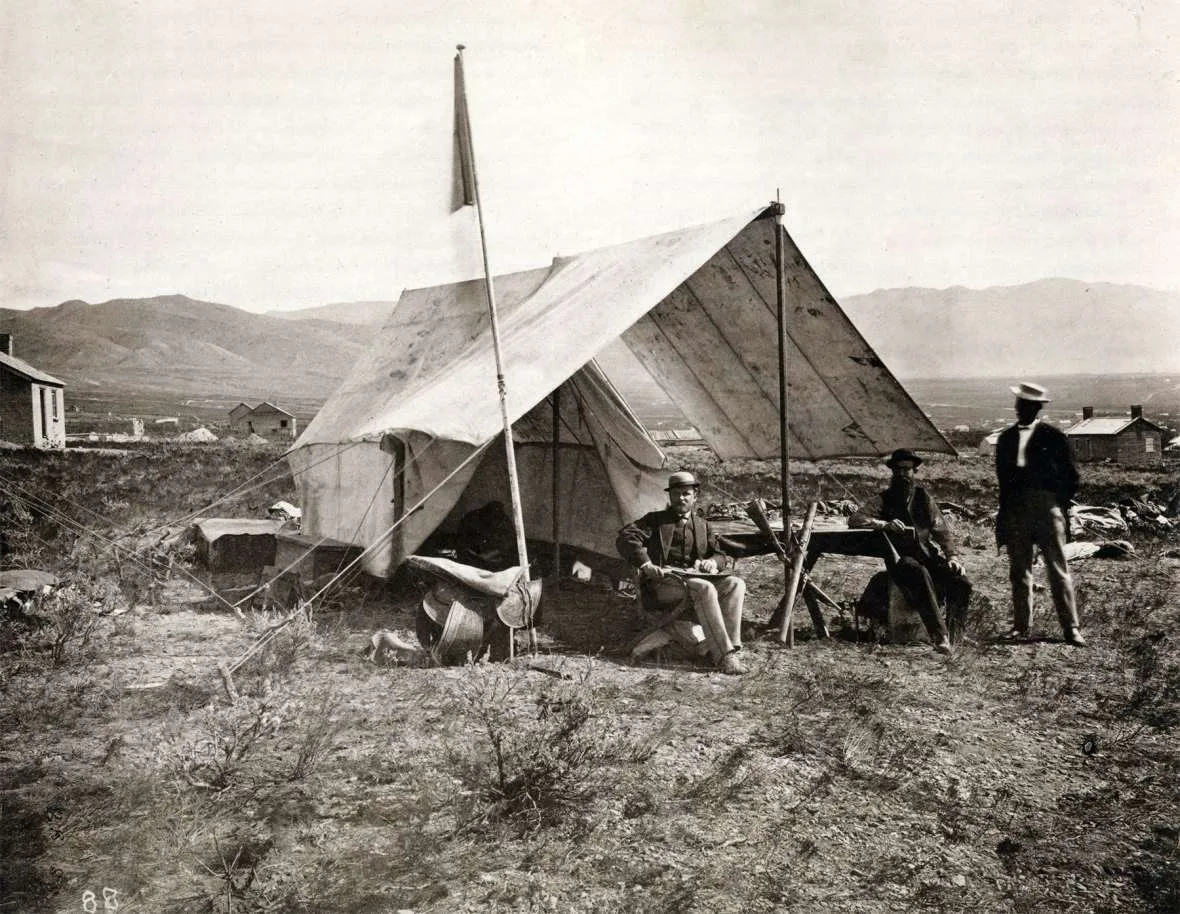The first vending machine was invented to dispense holy water

From Atlas Obscura: "Vending machines have a fascinating history — the first one was actually created to prevent holy water theft back in the 1st century. That machine came about thanks to the handiwork of Heron of Alexandria. Now, Heron invented plenty of things that helped set the stage for our modern society. Steam engine? He was all over it. A wind-powered machine? That was him. But many of these things pale in comparison to the machine he created that efficiently ensured that people weren’t taking too much holy water at the temples where they went to worship. Heron came up with a solution that was immensely clever. People would drop tokens inside of the holy water dispenser, and the weight of the token would push against a lever that opened a small door. While the door was open, the holy water would fall out. Eventually, the coin would fall and the door would close—ensuring that people never took more than their fair share."
Letters sent by people who took rocks from the Petrified Forest and then felt bad

From Letters of Note: "Each year, countless visitors to Arizona’s Petrified Forest National Park ignore the stark warnings at its boundaries, spiriting away roughly 12 tons of its ancient, fossilised wood and stones—invaluable fragments of prehistory that rarely reappear. But some are returned, accompanied, more often than not, by a written apology that is soon archived in the park’s museum alongside hundreds of other “conscience letters.” Tales of remorse, guilt, and superstition can be found in these notes, with many confessing to a series of misfortunes and inexplicable bad luck since taking the petrified wood. Some speak of ruined relationships, financial disasters, and persistent health issues, attributing their woes to the stolen relics. These heartfelt pleas for forgiveness have become an unexpected and poignant part of the park’s history."
The textbooks used in school were all wrong about how your tongue works

From the New York Times: "Think for a minute about the little bumps on your tongue. You probably saw a diagram of those taste bud arrangements once in a biology textbook — sweet sensors at the tip, salty on either side, sour behind them, bitter in the back. But the idea that specific tastes are confined to certain areas of the tongue is a myth that persists in the collective consciousness despite decades of research debunking it, according to a review published in The New England Journal of Medicine. Also wrong: the notion that taste is limited to the mouth. The old diagram, which has been used in many textbooks over the years, originated in a study published by David Hanig, a German scientist, in 1901. But the scientist was not suggesting that various tastes are segregated on the tongue. He was actually measuring the sensitivity of different areas."
(Editor's note: If you like this newsletter, please share it with someone else. And if you really like it, perhaps you could subscribe, or contribute something via my Patreon. Thanks for being a reader!)
Colleen Hoover is a hugely successful author. So why did she stop writing?

From Texas Monthly: "Her books have sold more than 50 million copies globally, and some have been translated into 45 languages. Of the 24 titles she has published in the past twelve years, 17 have been New York Times best-sellers. In 2022 alone she sold 14.3 million copies, as tracked by Circana BookScan. Plot summaries of her books read like a Days of Our Lives writers’-room brainstorm. Hoover’s fans, who call her CoHo and refer to themselves as CoHorts, have catapulted the 44-year-old writer from a job in social work in East Texas to an echelon of genre-fiction success enjoyed by very few—a lofty plane populated by Dan Brown, of The Da Vinci Code; and E L James, of Fifty Shades of Grey. She moved into this house in April 2023, she says, and she has not written a single word since before then. She has been ritually telling her editors she’ll get them something in three months. She is egregiously behind on every deadline. Her editors are being kind about the delays, but Hoover is terrified."
The creator Of Magic: The Gathering says he knows exactly where things went wrong

From Defector: "After Magic: The Gathering debuted at Gen Con in 1993, six months of product sold out in six weeks. When the company moved its offices into an industrial park in Tukwila a few months later, it grew from seven employees to a hundred in less than a year, at one point hiring 10 new employees a week to keep up with demand. It’s never really slowed down since then. Hasbro purchased Wizards of the Coast in 1999, and by 2023 Magic had become the company’s first-ever billion-dollar brand. Garfield is a Moses-like figure in Magic’s history, a man who descended from the mountain carrying a game that would become an industry unto itself in his head, fully formed. It is not surprising that people who know him and have worked with him refer to him as a genius. But last year, he gave an interview in which he seemed to lament what Magic has become."
Two San Francisco prospectors stole millions in 1871 thanks to a clever diamond hoax

From Terra Nullius: "In 1871, amidst the fervour of post-Gold Rush San Francisco, a city teeming with tales of fortune and the echoes of prospectors' dreams, two frontiersmen wandered into the main branch of the Bank of California. Philip Arnold and John Slack, their faces weathered by the frontier sun and with a thick layer of dust on their clothes, cut striking figures amidst the polished marble and gleaming brass of the bank's caged counters. At the cashier’s desk, Arnold flashed his tobacco-stained grin and said they needed a safety deposit box for some “property of great value.” With some skepticism, the two were shown into the bank’s vault and there produced a pouch of stones and gems – mostly beautifully rough diamonds. Slack remained silent as Arnold explained they had found a section of the plains in the American west covered with diamonds and other stones, and they had simply scooped them up."
A hungry fox brings his friends and family to the house of a woman who feeds him
A fox brings its friends and family to see a woman who regularly feeds wildlife
— Science girl (@gunsnrosesgirl3) June 11, 2024
pic.twitter.com/TDVCt1yy3D
Acknowledgements: I find a lot of these links myself, but I also get some from other newsletters that I rely on as "serendipity engines," such as The Morning News from Rosecrans Baldwin and Andrew Womack, Jodi Ettenberg's Curious About Everything, Dan Lewis's Now I Know, Robert Cottrell and Caroline Crampton's The Browser, Clive Thompson's Linkfest, Noah Brier and Colin Nagy's Why Is This Interesting, Maria Popova's The Marginalian, Sheehan Quirke AKA The Cultural Tutor, the Smithsonian magazine, and JSTOR Daily. If you come across something interesting that you think should be included here, please feel free to email me at mathew @ mathewingram dot com


